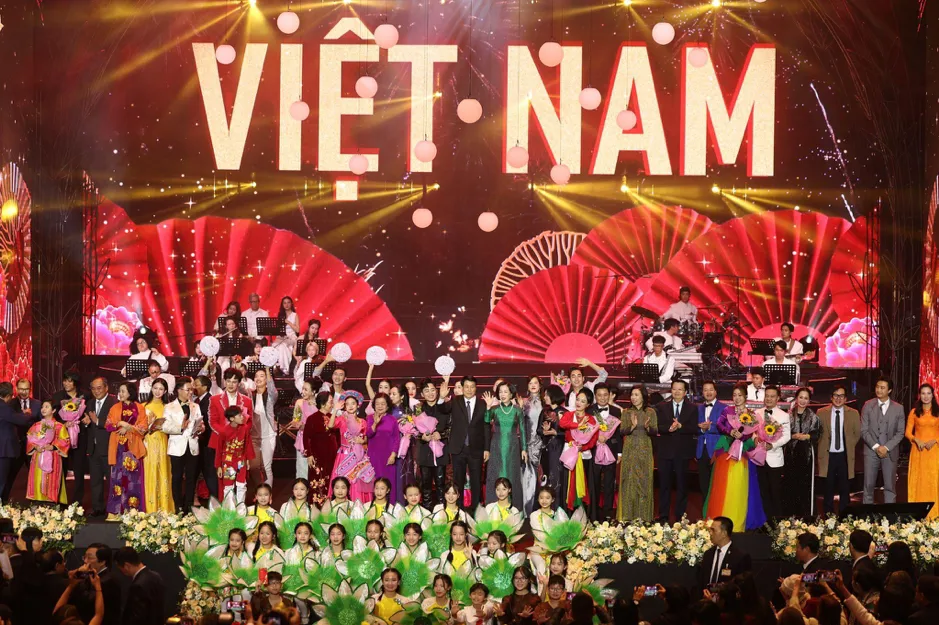Revised Capital Law unlocks investment potentials for Overseas Vietnamese
The revised Capital Law encourages overseas Vietnamese's engagement and investment, contributing to the country's growth, to which intellectual and capital are always essential.
The Capital Law amended in 2024 is expected to facilitate the contribution of overseas Vietnamese to the socio-economic development of Hanoi.
In an interview with The Hanoi Times, Lawyer Truong Anh Tuan, Director of Truong Son Law Firm and Head of the Legal Committee of the Vietnam Real Estate Association, shared in-depth insights on the opportunities, challenges, and solutions to attract overseas Vietnamese investment in the city.
What opportunities does the revised Capital Law offer overseas Vietnamese to support Hanoi's development?
I highly appreciate the features brought by the 2024 Capital Law, especially in strengthening the role of the private sector, foreign investors, and the overseas Vietnamese community in investment and socio-economic development in the capital.
The law has expanded the development space for knowledge-based industries, creative industries, and high technology – the sectors that overseas Vietnamese have significant advantages, both in terms of financial capacity and expertise.

Lawyer Truong Anh Tuan, Director of Truong Son Law Firm and Head of the Legal Committee of the Vietnam Real Estate Association.
Besides investment incentives, the law establishes a robust framework for Hanoi's digital transformation and economic modernization. It provides the legal basis for streamlined administrative procedures, attractive tax incentives, and greater autonomy in urban planning, all of which significantly boost Hanoi's appeal as an investment destination.
These favorable conditions help attract high-quality talent and capital from the overseas Vietnamese community.
What are the most common obstacles facing overseas Vietnamese in their investment?
The most pressing issue is the complexity and inconsistency of regulations and administrative procedures. Navigating the process of securing permits, registering businesses, and fulfilling tax obligations can be overwhelming, especially for those who do not stay informed about changes in Vietnam's legal landscape.
Another persistent challenge is access to land. Investors often struggle with land leasing, land clearance, and land use rights due to rigid and opaque mechanisms. Additionally, securing domestic financing remains challenging. Banks typically require collateral, which many overseas Vietnamese cannot provide because they do not own assets in Vietnam.
The overall business environment also presents hurdles, including high investment costs, inadequate infrastructure, and intense market competition.
However, Hanoi has made proactive efforts to address concerns through conferences and dialogues, helping build confidence and foster a more supportive investment climate for the overseas Vietnamese community.

Overseas Vietnamese gather for the 2025 Homeland Spring. Source: VOV
How does the Capital Law help address these challenges?
The law offers many practical support mechanisms. One notable change is the exemption of land rent for certain projects that involve private capital, such as underground parking, instead of just reducing it. This is a significant change that will help investors save costs and improve financial efficiency.
In addition, the law allows enterprises to use 30% of the land area in infrastructure projects for supporting services, increasing revenues to cover investment costs.
The law also makes it easier for overseas Vietnamese enterprises to access land through the planning of priority areas, with more transparent land lease and site clearance procedures and shorter project implementation times.
In terms of financing, the law provides a legal framework for credit institutions to adopt more flexible criteria in evaluating and supporting overseas Vietnamese investors. At the same time, the government is encouraging the establishment of financial support funds and innovation investment funds, which are particularly beneficial for entrepreneurs with strong ideas but limited initial capital.
The Hoa Lac Hi-Tech Park is an example of expanding access for investors in the technology sector. In addition, Hanoi actively resolves legal issues affecting over 400 delayed real estate projects, providing valuable opportunities for overseas Vietnamese investors in this promising market.
What areas should Hanoi prioritize to attract overseas Vietnamese?
I think there are three main priority areas. The first is finance and social welfare. The law has given Hanoi greater autonomy in mobilizing revenues and spending budgets. This is an opportunity to encourage overseas Vietnamese to participate in social insurance, community health care, education, and other non-profit sectors where they can contribute both intellectually and financially.
The second focus is innovation and startups. The law establishes a legal basis for Hanoi to pilot a venture investment fund backed by state budget funds. This fund will support high-tech companies, startups, and companies with international integration. Given their extensive experience and global networks, overseas Vietnamese are well-positioned to participate in or even lead projects in this dynamic sector.
The third is infrastructure and transportation. The introduction of the build-transfer (BT) contract model allows Hanoi to attract private sector resources for critical transportation projects, mainly in urban rail systems, smart cities, the renovation of old residential areas, and the construction of internationally standard-based urban zones. In addition, the law's flexible provisions on land planning and use help address long-standing bottlenecks in Hanoi's infrastructure development.
How can Hanoi help overseas Vietnamese seize opportunities?
It's essential to ensure effective enforcement of the Capital Law. First, detailed guidelines must be issued immediately to help line agencies, businesses, and citizens understand and apply the law correctly.
In addition, Hanoi needs to listen to overseas Vietnamese, especially those interested in investing or transferring technology, through regular forums and conferences. Meanwhile, the government should consider overseas Vietnamese investors as strategic partners, willing to provide support from the idea stage through procedures to actual implementation.
Last but not least, it is crucial to establish mechanisms to strictly monitor and supervise the enforcement of the law. As Hanoi is granted greater autonomy, there must also be a robust oversight system to ensure that policies are implemented in the right direction.
Thanks for your time!








